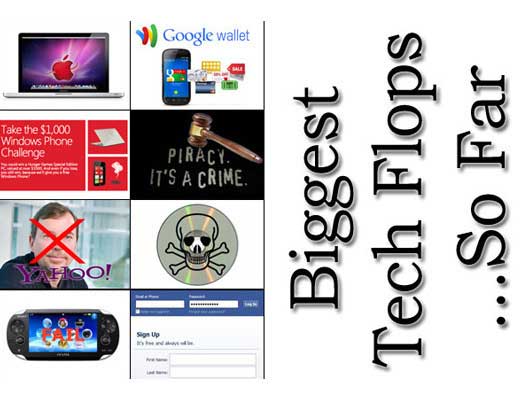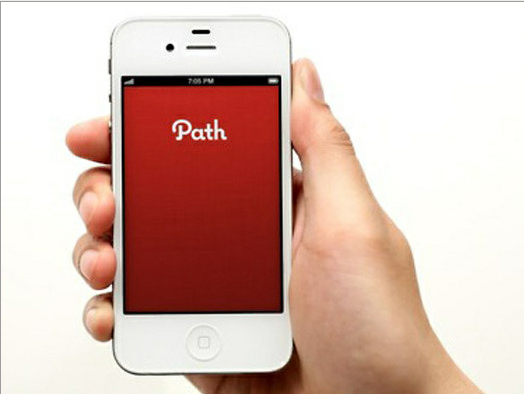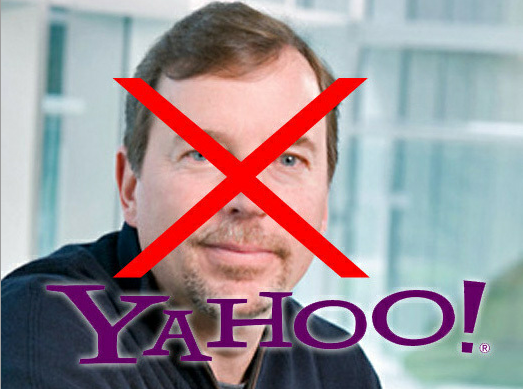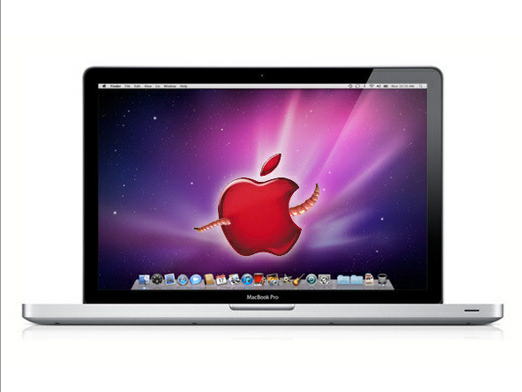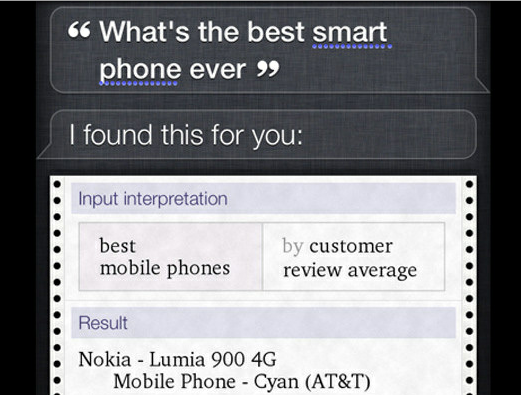-
The top 10 tech tumbles of 2012 (so far)
Everyone gets caught up in the excitement over the next big thing–especially in the tech world. Unfortunately, all too often, an overhyped “next big thing” turns out to be less than awesome. Luckily for tech companies, technology moves so quickly that most people quickly forget a disappointing product or service in the buildup to the next surefire winner. At PCWorld, though, we like to reminisce.
Here are the biggest flops of 2012–so far.

-
Facebook IPO
Facebook went public on May 18, 2012, with the price of a share initially set at $38. The company was valued at $104 billion–quite a bit for a company whose 2011 revenue just topped $3.7 billion–so it might not be surprising that the Facebook IPO sort of…flopped. At this writing, a little more than two weeks later, Facebook shares were trading at $26.90, down $11.10 from the opening price.

-
SOPA
The controversial Stop Online Piracy Act (SOPA), a bill in the U.S. House of Representatives that would have allowed courts to order ISPs to block access to entire Internet domains accused of infringing on copyrighted content, was all the rage in January 2012. The bill rankled the tech community, in particular, and even prompted such websites as Wikipedia and Reddit to black out their services for a day in protest. On January 20, the House Judiciary Committee postponed consideration of the bill–in effect, tabling it indefinitely.

-
Path
Smartphone-based social network Path was rolling along pretty well until this February, when a developer discovered that the app was uploading users’ address books to its servers without their explicit consent. Though Path wasn’t the only app to upload names, email addresses, and/or phone numbers from users’ address books without the users’ express permission), the network’s road to forgiveness has been difficult.

-
Employers Request Facebook Logins
If you’ve been in the job market in the past few years, you probably know that many employers check up on the social networking profiles of both potential hires and current employees. But in March we learned that some employers weren’t just looking at employees’ public profiles–they were actually asking for log-in information, including passwords, so they could snoop even deeper. This controversial policy piqued the interest of lawmakers, and several states have since passed legislation forbidding employers to make such requests.

-
Google Wallet
Tech vendors have been talking up NFC (near-field communication) mobile payments for a while now. But it looks as though 2012 won’t be the year of the mobile payment system; consumers have been reluctant to adopt the new payment method. Also, in February of this year, a blog described a troubling security flaw in Google’s NFC payment method, Google Wallet. The vulnerability allowed anyone holding a rooted smartphone that was running Google Wallet to access the Google Wallet PIN and make purchases using the credit card tied to the NFC chip.

-
Yahoo’s (Ex)-CEO
Yahoo hired CEO Scott Thompson in January. In May, activist investor Dan Loeb publicly questioned Thompson’s credentials–specifically noting that Thompson claimed to have a bachelor’s degree in accounting and computer science from Stonehill College. It came to light that Thompson had embellished his rÈsumÈ, and that he holds a degree in accounting only. On May 13, Yahoo discharged Thompson from his job as CEO.

-
Microsoft Botches Windows Phone Challenge
In an effort to promote its not-so-popular Windows Phone handsets, Microsoft recently announced a “Smoked by Windows Phone” challenge. The challenge: See if your smartphone can do what a Windows Phone can do…but faster. Unfortunately, Microsoft’s campaign flopped in two ways: First, a tech writer smoked the Windows Phone with his Android handset. Second, Microsoft refused to award him the prize, which was a special-edition laptop valued at $1000. Er…yeah.

-
Flashback
Mac users have finally been knocked off their malware-free pedestal, thanks to Flashback, a Trojan horse that has infected more than 600,000 Apple computers. The malware exploits a Java vulnerability; and though Apple responded with Java updates and removal tools, the virus still plagues more than 140,000 Macs.

-
Siri Endorses Nokia
Apple’s sassy personal assistant, Siri, recently made a faux pas: For a couple of weeks, the virtual assistant answered the question “What is the best smartphone ever?” with the answer “the Nokia Lumia 900.” Oops. Siri had pulled its information from Wolfram Alpha, which based its rating of the Lumia 900 on Best Buy customer reviews. Apple has since recalibrated Siri to answer the question with such witticisms as “You’re kidding, right?”

-
Privacy
Privacy is always a flop when the tech industry is involved. After all, we can’t have an open, sharey Internet without, well, we give up our privacy. The most notable privacy flop so far has been Google’s restructuring of its privacy guidelines so that it could unify its users’ data across all Google-related services. The company claimed that it was just making things simpler, but the revamp was actually a way for Google to prepare the world for its cloud-based service, Google Drive.

❮ ❯




